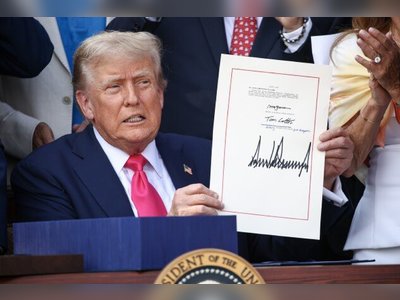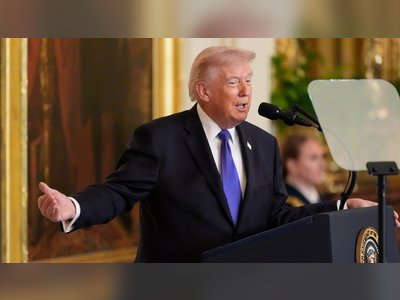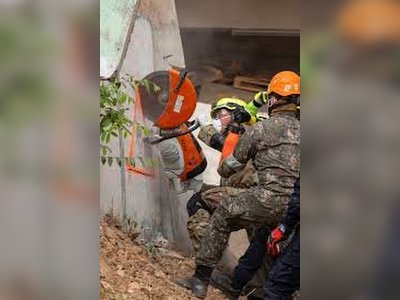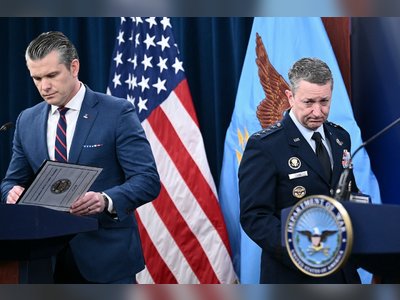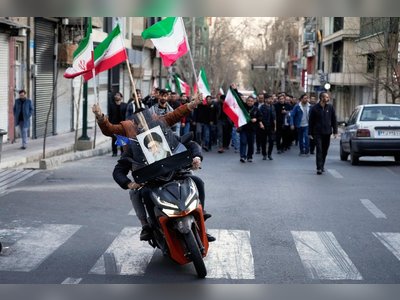Accusations of Genocide in Gaza: Navigating the Minefield of Global Accountability
Amnesty International's charges against Israel prompt a reassessment of international roles and responsibilities in enduring conflicts.
In an age where the rapid exchange of information often fuels discord, the accusation from Amnesty International that Israel is committing genocide in Gaza strikes a profoundly contentious chord.
Embedded in the convoluted landscape of the Israeli-Palestinian conflict, the use of the term 'genocide' carries weighty consequences.
This analysis seeks to unpack whether such a characterization is warranted, exploring the implications and resonances of this claim.
Amnesty's report underscores the systematic destruction observed in Gaza: infrastructure obliteration and a blockade stymying the influx of essential supplies for civilians.
The organization posits that this echoes an attempt at systematic annihilation—a charge that Israel vehemently refutes as an anti-Semitic 'blood libel.' The Israeli government cites self-defense under international law, particularly against the existential threats posed by Hamas' agendas.
The invocation of this defense is colored by a painful historical memory, notably the Holocaust, which remains a persistent element in Israel's national discourse.
Further complicating this dialogue is Amnesty's critique of Western nations, particularly those providing military aid to Israel, accusing them of complicity in exacerbating this conflict.
This accusation demands a thorough examination, as the gravity of such allegations necessitates indisputable evidence.
How might geopolitical alliances and vested interests be skewing the narrative and obscuring objective scrutiny?
In the pursuit of clarity and justice, international actors must navigate a complex web of sovereignty and humanitarian responsibility.
The discourse must transcend assertions of blame and pivot towards fostering effective dialogue.
Perhaps an evolved framework for conflict resolution—one that judiciously balances sovereign rights with humanitarian imperatives—can emerge as a beacon for peace.
Ultimately, the international community faces the daunting task of promoting justice and peace without forfeiting either.
By acknowledging both the heavy shadows of history and the dynamic intricacies of contemporary geopolitics, stakeholders might carve out pathways for constructive engagement.
As the global stage grapples with these allegations, an underlying question persists: How can we ensure that global accountability does not forsake the cause of humanity in its adjudication?
Embedded in the convoluted landscape of the Israeli-Palestinian conflict, the use of the term 'genocide' carries weighty consequences.
This analysis seeks to unpack whether such a characterization is warranted, exploring the implications and resonances of this claim.
Amnesty's report underscores the systematic destruction observed in Gaza: infrastructure obliteration and a blockade stymying the influx of essential supplies for civilians.
The organization posits that this echoes an attempt at systematic annihilation—a charge that Israel vehemently refutes as an anti-Semitic 'blood libel.' The Israeli government cites self-defense under international law, particularly against the existential threats posed by Hamas' agendas.
The invocation of this defense is colored by a painful historical memory, notably the Holocaust, which remains a persistent element in Israel's national discourse.
Further complicating this dialogue is Amnesty's critique of Western nations, particularly those providing military aid to Israel, accusing them of complicity in exacerbating this conflict.
This accusation demands a thorough examination, as the gravity of such allegations necessitates indisputable evidence.
How might geopolitical alliances and vested interests be skewing the narrative and obscuring objective scrutiny?
In the pursuit of clarity and justice, international actors must navigate a complex web of sovereignty and humanitarian responsibility.
The discourse must transcend assertions of blame and pivot towards fostering effective dialogue.
Perhaps an evolved framework for conflict resolution—one that judiciously balances sovereign rights with humanitarian imperatives—can emerge as a beacon for peace.
Ultimately, the international community faces the daunting task of promoting justice and peace without forfeiting either.
By acknowledging both the heavy shadows of history and the dynamic intricacies of contemporary geopolitics, stakeholders might carve out pathways for constructive engagement.
As the global stage grapples with these allegations, an underlying question persists: How can we ensure that global accountability does not forsake the cause of humanity in its adjudication?




